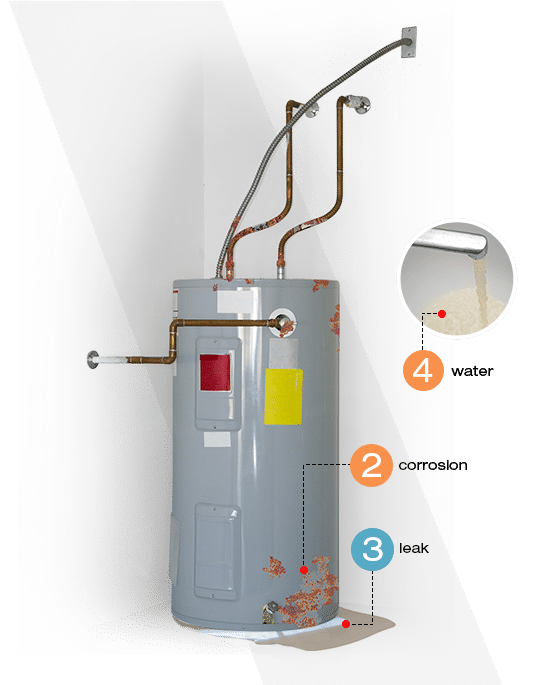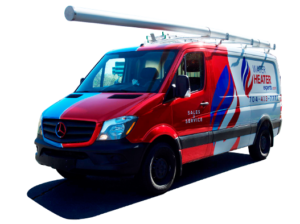faq

WaterHeaterExperts.com are Charlotte’s authority in all forms of water heater systems. We offer the best repair and installation services in the area and are fully certified and licensed to install any type of water heater.


faq

WaterHeaterExperts.com are Charlotte’s authority in all forms of water heater systems. We offer the best repair and installation services in the area and are fully certified and licensed to install any type of water heater.
If your current hot water system is 8 years old

and you are experiencing any of the following issues, it may be time to get a new water heater:
a lack of enough hot water to get through the day
Leaking from your existing tank
Any signs of corrosion on the outside of the tank
Water has discolored
You Hear a Popping or Crackling Noise

Consider your families daily water needs

If your family has grown then you may need to consider a larger unit. If you are energy conscious, or would like ‘on-demand’ hot water then we would strongly suggest a tankless hot water heater system.
According to consumer reports

the easy answer is 8-12 years, although the number can fluctuate greatly depending on the brand of the water heater, and the quality of your water.
The typical life expectancy of a tank water heater is 8-12 years. A lot can depend upon the quality of your water however (see below)
It completely depends upon your household

You want a tank that will be large enough to get your entire family through a day of baths and showers as well as dish washing, clothes washing etc. The chart below gives you an idea of how much water you need by the number of people in your home. Alternatively a tankless water heater can handle any household capacity since it heats ‘on-demand’

4 people or less – 30 Gallon capacity heater
5-7 people – 40 Gallon
8-9 people – 50 Gallon
10-12 people – 75 Gallon
long term investment

If you look at your home as a long term investment and want to make it energy efficient, then absolutely. Also if you are interested in immediate and constant hot water, then a tankless system is right for you. Here are some pros and cons on tankless systems…

Pros
Cons
Runs Green. Environmentally friendly
Constant hot water. Great for large families
35% cheaper to run than conventional tank heaters
Small footprint. Takes up less space
No tank means no flooding concerns
Can last up to 30 years (as opposed to 10-12 years for tank heaters)
Initial cost can me 2 to 3 times more than a tanked water heater
No reserve – If your power is out you have no hot water
Needs to be professionally installed to meet manufacturers warranty
This symptom

is probably either an anode rod failing in your system or an indication of bacteria growth. Either way it is time to get the system checked and see if it needs replacing.
More than likely

it is a buildup of calcium deposits or sediments. This comes from your water supply and will buildup with use. It would be wise to have your water checked.
Contact the professionals at waterfiltrationexperts.com to learn more.
too small

Your water tank is probably too small for your household. We would recommend either getting a larger tank or taking the opportunity to switch to a tankless water heater system for unlimited hot water.
new water heater

- Four or more occupants inside the household
- Current water heater is inside the attic, 2nd floor, ground floor, closet, utility, or pantry
- Current water heater tank is electric, but your home has a gas line available
- Your family has to schedule when you take your showers

flush or service

- Rinnai encourages annual flushing but in our experience annual flushing is only needed if the tankless water heater has a recirculating pump. If there is no circulating pump, then flushes are recommended every 3 to 5 years.
extend life

- If you’re on municipal, city, or county water, make sure you have a whole home filter system (link whole home filter system to waterfiltrationexperts.com) that removes chlorine. Chlorine will decelerate the corrosive nature of the water. If well water, ensure you have soft or neutral pH water to prevent hyper corrosion.
If your current hot water system is 8 years old

and you are experiencing any of the following issues, it may be time to get a new water heater:
a lack of enough hot water to get through the day
Leaking from your existing tank
Any signs of corrosion on the outside of the tank
Water has discolored
You Hear a Popping or Crackling Noise

Consider your families daily water needs

If your family has grown then you may need to consider a larger unit. If you are energy conscious, or would like ‘on-demand’ hot water then we would strongly suggest a tankless hot water heater system.
According to consumer reports

the easy answer is 8-12 years, although the number can fluctuate greatly depending on the brand of the water heater, and the quality of your water.
The typical life expectancy of a tank water heater is 8-12 years. A lot can depend upon the quality of your water however (see below)
It completely depends upon your household

You want a tank that will be large enough to get your entire family through a day of baths and showers as well as dish washing, clothes washing etc. The chart below gives you an idea of how much water you need by the number of people in your home. Alternatively a tankless water heater can handle any household capacity since it heats ‘on-demand’

4 people or less – 30 Gallon capacity heater
5-7 people – 40 Gallon
8-9 people – 50 Gallon
10-12 people – 75 Gallon
long term investment

If you look at your home as a long term investment and want to make it energy efficient, then absolutely. Also if you are interested in immediate and constant hot water, then a tankless system is right for you. Here are some pros and cons on tankless systems…

Pros
Cons
Runs Green. Environmentally friendly
Constant hot water. Great for large families
35% cheaper to run than conventional tank heaters
Small footprint. Takes up less space
No tank means no flooding concerns
Can last up to 30 years (as opposed to 10-12 years for tank heaters)
Initial cost can me 2 to 3 times more than a tanked water heater
No reserve – If your power is out you have no hot water
Needs to be professionally installed to meet manufacturers warranty
This symptom

is probably either an anode rod failing in your system or an indication of bacteria growth. Either way it is time to get the system checked and see if it needs replacing.
More than likely

it is a buildup of calcium deposits or sediments. This comes from your water supply and will buildup with use. It would be wise to have your water checked.
Contact the professionals at waterfiltrationexperts.com to learn more.
too small

Your water tank is probably too small for your household. We would recommend either getting a larger tank or taking the opportunity to switch to a tankless water heater system for unlimited hot water.
new water heater

- Four or more occupants inside the household
- Current water heater is inside the attic, 2nd floor, ground floor, closet, utility, or pantry
- Current water heater tank is electric, but your home has a gas line available
- Your family has to schedule when you take your showers

flush or service

- Rinnai encourages annual flushing but in our experience annual flushing is only needed if the tankless water heater has a recirculating pump. If there is no circulating pump, then flushes are recommended every 3 to 5 years.
extend life

- If you’re on municipal, city, or county water, make sure you have a whole home filter system (link whole home filter system to waterfiltrationexperts.com) that removes chlorine. Chlorine will decelerate the corrosive nature of the water. If well water, ensure you have soft or neutral pH water to prevent hyper corrosion.
let us

check your current hot water system. We will answer openly and honestly about whether your tank can be repaired or needs to be replaced.


Every home is unique and therefore has its own specialized water heating needs. That is why WaterHeaterExperts.com offers free estimates on all water heater installations. You are guaranteed a 100% accurate detailed estimate on what it will cost to remove and replace your current system.



Every home is unique and therefore has its own specialized water heating needs. That is why WaterHeaterExperts.com offers free estimates on all water heater installations. You are guaranteed a 100% accurate detailed estimate on what it will cost to remove and replace your current system.








